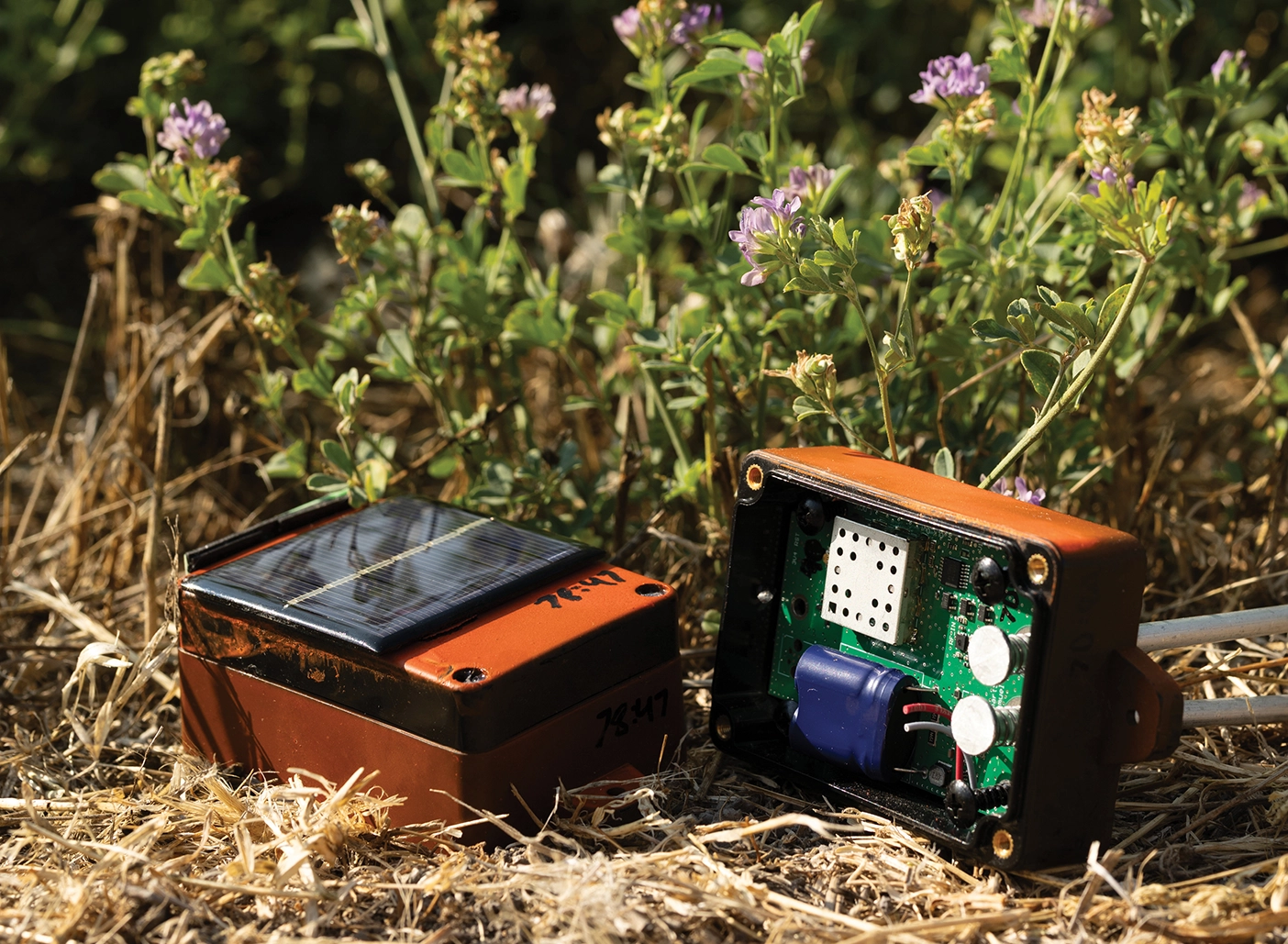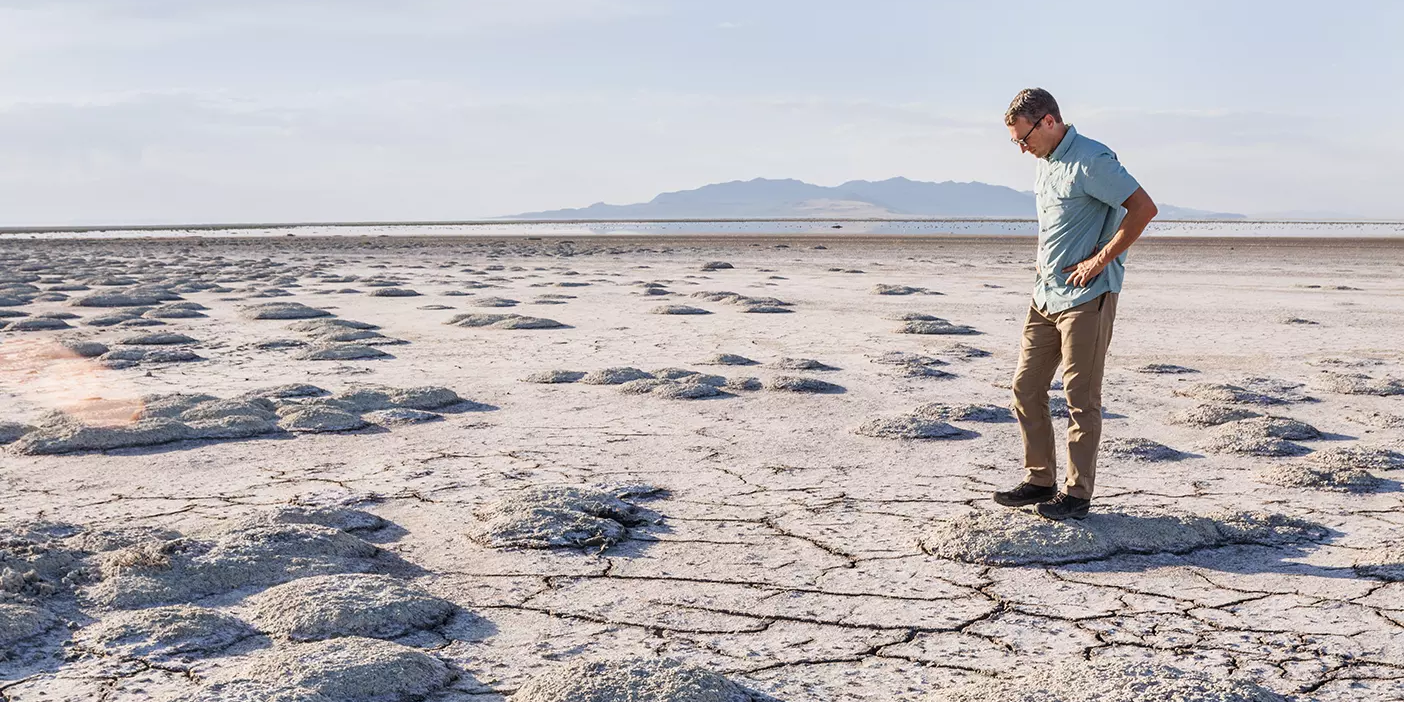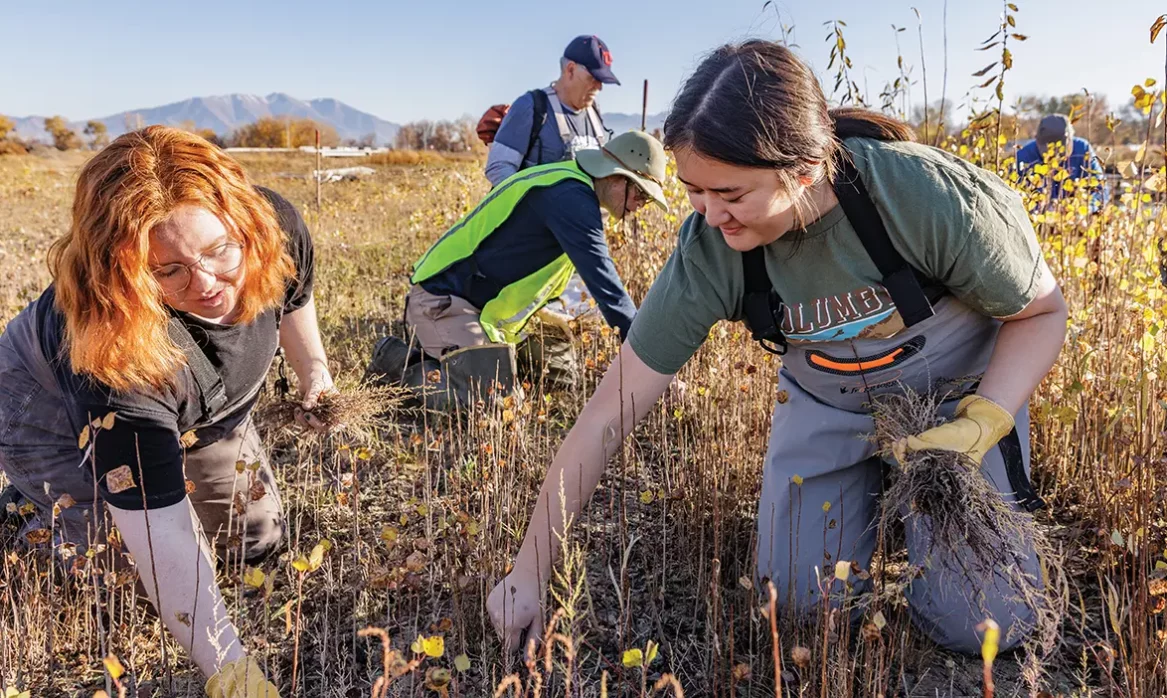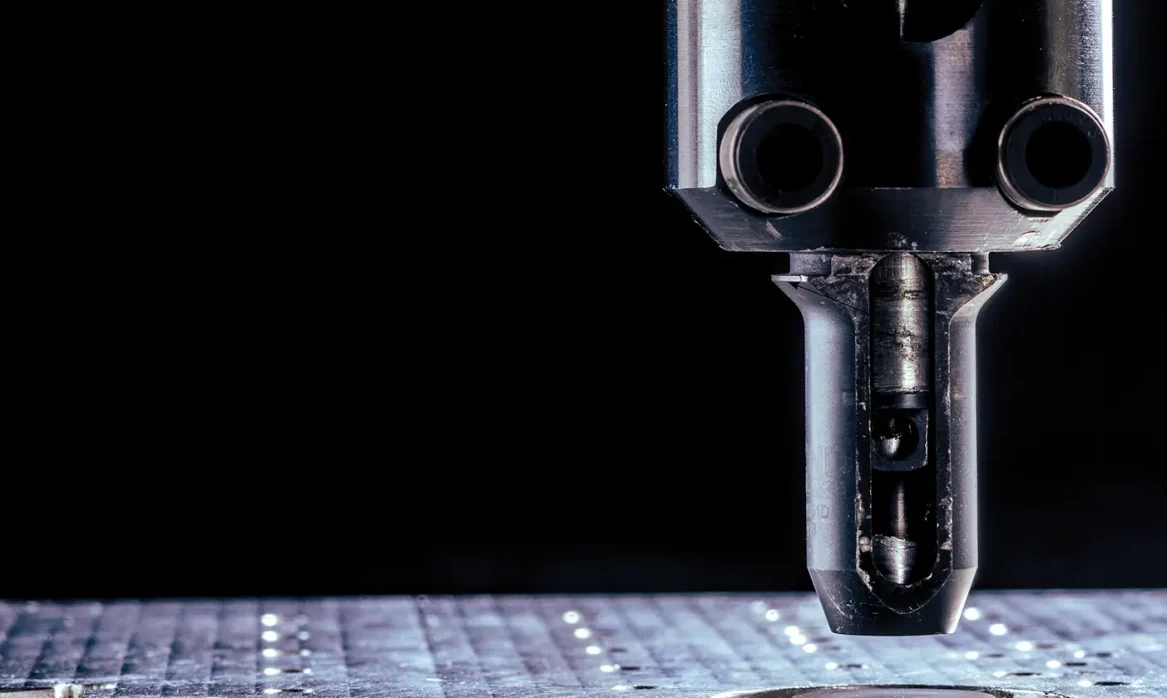Determining exactly how much to irrigate crop fields has proved a difficult task. Some parts of the same field need less water than others, and to protect their crop yields farmers tend to over irrigate, sometimes leading to wasted water.
BYU researchers are working on a solution: Smart Bluetooth Stakes, a sensor system that measures soil moisture. The sensors—developed by electrical engineering professor Brian Mazzeo, environmental science professor Neil C. Hansen (BS ’92, MS ’94), geography professor Ruth Kerry, and a team of students—collect data farmers can use to adjust irrigation.
Effective sensors, says grad student Samuel J. Craven (BS ’23), “have to be really small, low enough to the ground that a farmer’s tractor can go over top of it, and cheap enough that we can do hundreds of them.” Bluetooth technology makes it possible. Craven’s work on the USDA-funded project is part of his dissertation and was published in the journal Sensors.
In a field west of Utah Lake, the sensors successfully transmitted signals through fully grown wheat, even at its most mature stage. Data like that collected by the system can help save up to 15 percent of the entire amount of water used to irrigate a field. “Showing that it’s possible to do means that other people can then build upon that result and hopefully come up with even better technologies,” says Mazzeo.

1 credit-card-sized solar panel harvests more than enough energy to power the sensor, even in the shade.
2 metal prongs measure moisture as often as once per minute.
Better coverage: The small size and affordability of the smart sensor mean farmers can use more of them and gather more precise data.












